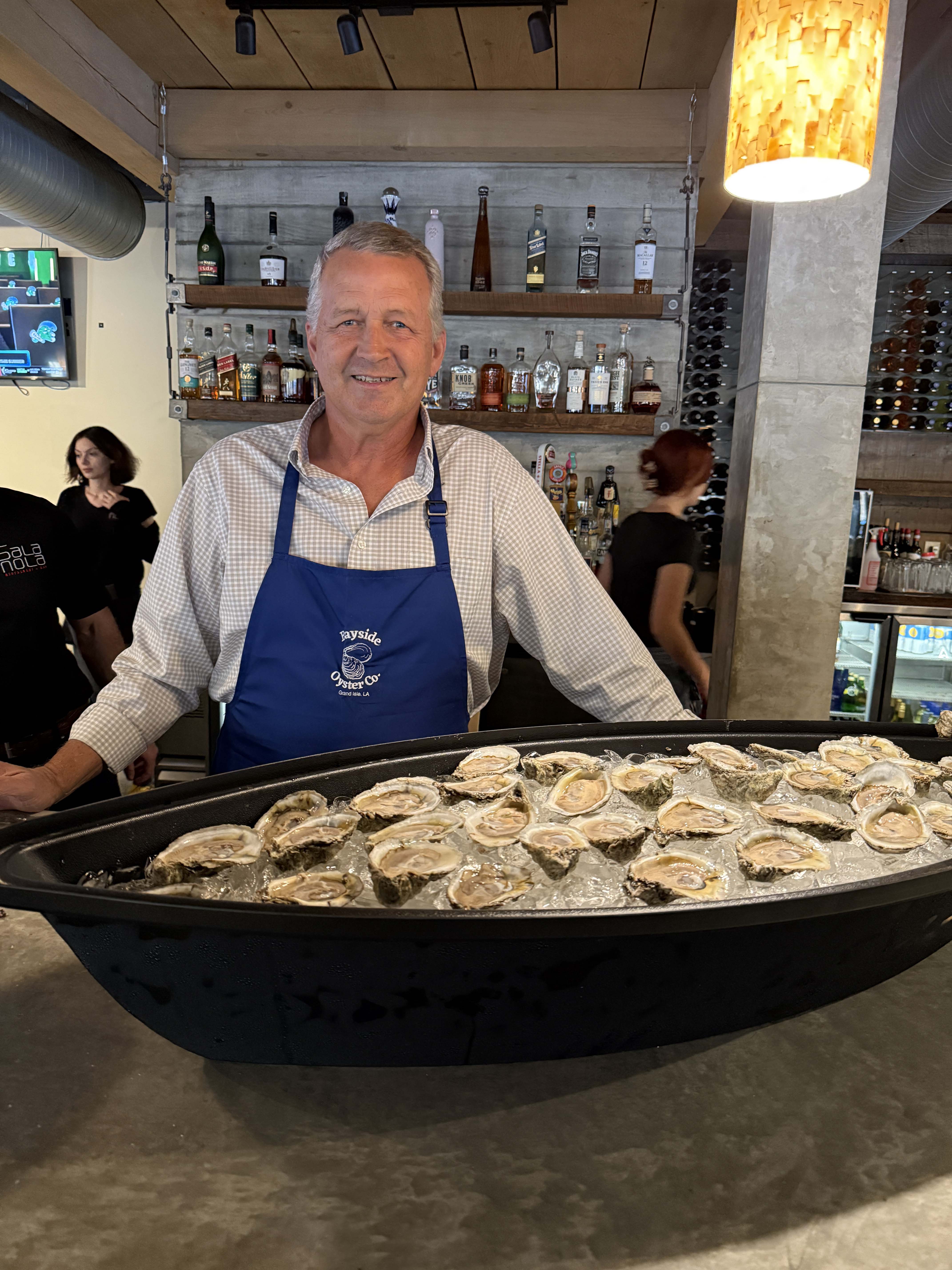
The latest
back to all articles
Full Catch Program: More value for fishers, restaurants and diners
It’s no secret that much of the Gulf of Mexico fishing industry generates a huge amount of waste and lost opportunities. However, that waste can be a resource, and with enough reimagining, planning and execution, fishers, seafood processors, restaurants and the public can take full advantage of what the Gulf has to offer.
Like many chefs, Carmo’s Chef Dana Honn is concerned about the fate of Louisiana’s fishing industry where many generations-old family businesses are tying up to the docks and packing up their gear for the final time. Honn knows that there’s so much more food, restaurant dishes and other products that could be produced instead of ending up in a waste stream or used for bait, while simultaneously supporting our fishing families.
“I've been trying to crack this nut for years,” Honn says. “Why are we not consuming these species and/or why aren’t they available for consumption? With a few changes, we can get a Fuller exchange for fishers’ efforts. They’re nowhere near that now.”
Since the mission is to get fishers a higher monetary value for their work, he’s calling it the Full Catch Program. It involves using more of the catch by using what often ends up as fish processing waste, to create new products and expanding the definition of what are commercially-viable species in the Gulf.
Honn has broken down the Full Catch program to the following tiers or levels:
- Level One: This is low-hanging fruit of the fishing industry because it’s about restaurants and chefs utilizing cuts, carcasses, and shrimp heads that usually end up as processing waste. Examples include collars, bellies, and ribs. Honn refers to these as “Gourmet” because diners want to see these in dishes. Carmo and other local seafood restaurants like GW Fins and Peche are already offering this to their customers.
- Level Two: Also considered “Gourmet.” Developing new products for consumption from existing catch wastes. Examples would be ground fish products (using meat rendered from carcasses), fish sauces, pastes, bottarga, shrimp shell powder.
- Level Three: Fishers often harvest forage fish or bait fish for use, but many of these species such as Spanish sardines, scaled sardines and round shad are eaten elsewhere in much of the world. Think canned, jarred and tinned sardines and other species.
- Level Four: Honn calls this the Industrial level, because these are not for human consumption: bone meal for gardens, scalite (building materials like tiles made from fish scales), other by-products relevant to tissue engineering, biological filling, sewage processing, and flexible electronics industries.
There are challenges for the Full Catch program such as getting people onboard, and processing concerns. These aren’t insurmountable and Honn has been meeting regularly with fishers and other chefs to encourage their participation. With storms and hurricanes, there’s a risk to building permanent processing facilities. The solution might be mobile processing units on trucks and trailers that can bring processing equipment to the Gulf and then be able to leave with the threat of a storm.
Honn says that currently the Full Catch program has an initial skeletal network and a business plan with a mission of assisting our local fishers.
“Our fishers are being forced out of business, because the profit margins are very tight on many targeted species, like red snapper, and the market supports a much smaller selection of Gulf seafood that doesn't truly represent the full bounty of the fishery,” says Honn. “The tragic irony is that the waste we see from current production is mind blowing, but by showing fishers, chefs and the public that so much more is available, fishers can stay in business, and the Gulf of Mexico can be a much more effective resource.”
more articles

December 17, 2025

November 12, 2025
.png)
October 16, 2025
.png)
September 10, 2025

August 2, 2022

August 2, 2022

August 2, 2022

August 2, 2022
